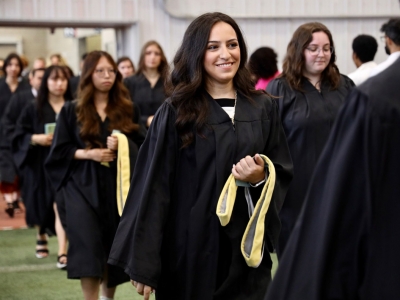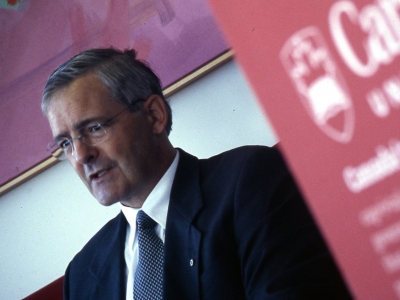Four Carleton University researchers have been awarded Partnership Engage Grants by the Social Sciences and Humanities Research Council of Canada (SSHRC). The grants will provide nearly $100,000 in funding to support Carleton research in the fields of workplace inclusion, climate-resilient housing, cross-sector partnerships and diversity in space research.
“Carleton faculty are leaders of innovative and collaborative research,” says Rafik Goubran, vice-president (Research and International). “The funding announced by SSHRC will contribute to growing multidisciplinary work that will have wide-reaching societal impacts.”
Sprott School of Business Prof. Luciara Nardon’s intersectional research will examine the experiences of immigrants in Canadian workplaces to help employers attract and retain top international talent. The collaborative project between the Centre for Research and Education on Women and Work and non-profit Hire Immigrants Ottawa, in collaboration with World Skills, will identify practices and develop strategies to increase inclusion of immigrants.
“Immigration is an important part of the fabric of Canadian society – this is especially true in the workplace,” says Nardon. “Through this research, Canadian businesses will have the tools they need to attract world-class talent and provide a welcoming environment.”
From flooding to forest fires, severe weather events increasingly threaten Canadian homeowners. In light of this new reality, Prof. Ruth McKay and Research Fellow Gary Martin at Sprott will work with the Insurance Bureau of Canada to study the regulatory processes of building code reviews. By identifying stakeholders, the project will link a community receptive to supporting necessary changes and building standards that will better protect Canadian properties from climate change impacts.
“Due to climate change, severe weather is becoming a more frequent reality across Canada,” says McKay. “Through this research, we will identify stakeholders working towards the construction of more weather-resilient homes and means to improve the regulatory process for Canada’s building codes.”
As critical social issues arise, cross-sector partnerships – comprised of corporations, non-profits and, at times, governments – have emerged in response. Sprott faculty member Andrew Webb is investigating what contributes to the success of cross-sector partnerships. Drawing upon the experience of Special Olympics Canada, a non-profit whose mission is to enrich lives of individuals living with an intellectual disability, Webb will explore the success factors of their extensive and long-standing partnerships from the perspective of the corporate sponsors.
“Cross-sector partnerships are a new important facet of both non-profit and private industry environments. Indeed, some of today’s toughest challenges simply cannot be tackled by any one individual entity,” says Webb. “By identifying best practices for organizations in these partnerships, this research will benefit groups throughout Canada.”
School of Journalism and Communication Prof. Victoria McArthur will explore how to design engaging digital applications in order to appeal to a diverse field of future scientists and space explorers. Utilizing augmented reality technology, the project will focus on how researchers and museums can use innovative tools to foster a rich connection to STEM (science, technology, engineering and math) fields for marginalized youth.
“While space agencies have made strides to increase diversity in recent years, there is still room for improvement,” says McArthur. “This research will help marginalized youth see themselves as the ground-breaking scientists and astronauts of tomorrow.”
Media Contact
Steven Reid
Media Relations Officer
Carleton University
613-520-2600, ext. 8718
613-265-6613
Steven_Reid3@Carleton.ca
Carleton Newsroom: https://newsroom.carleton.ca/
Follow us on Twitter: www.twitter.com/Cunewsroom
Need an expert? Go to: www.carleton.ca/newsroom/experts
Wednesday, July 17, 2019 in News Releases
Share: Twitter, Facebook



